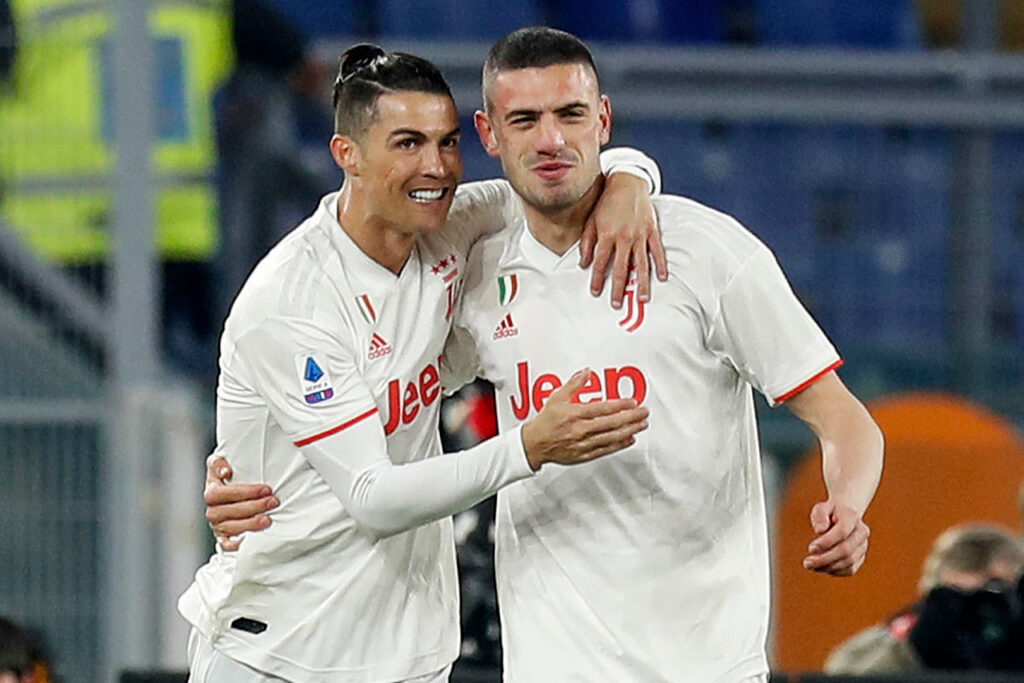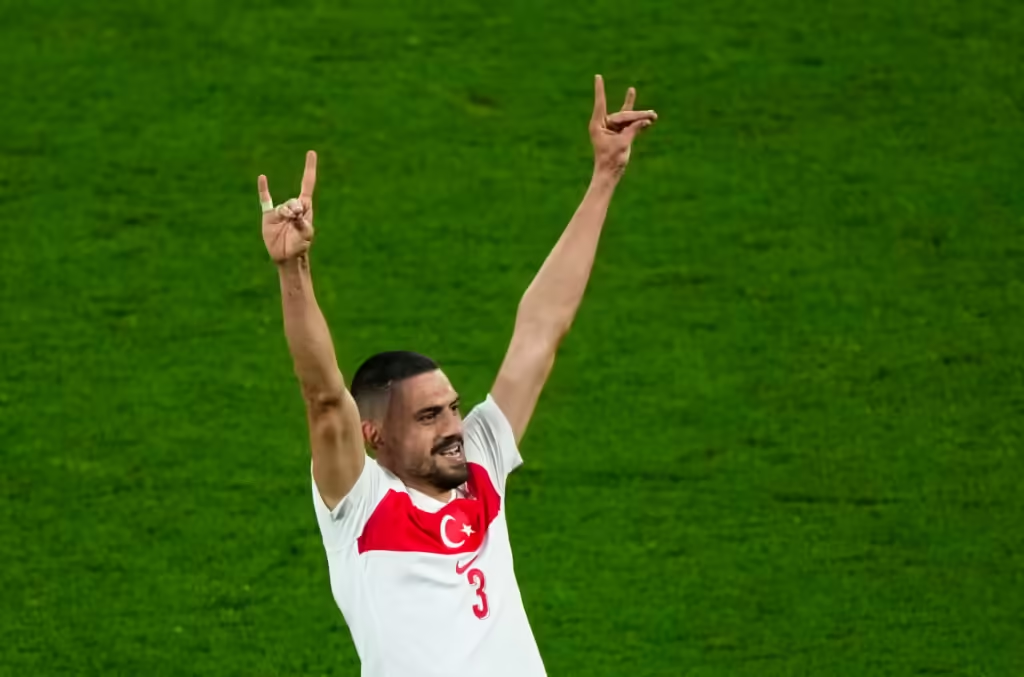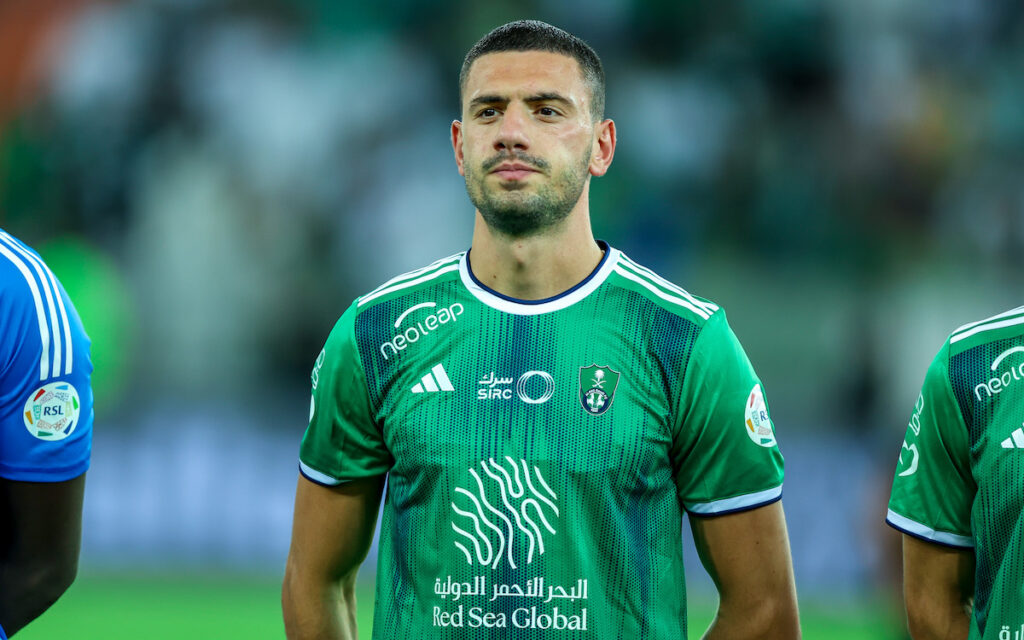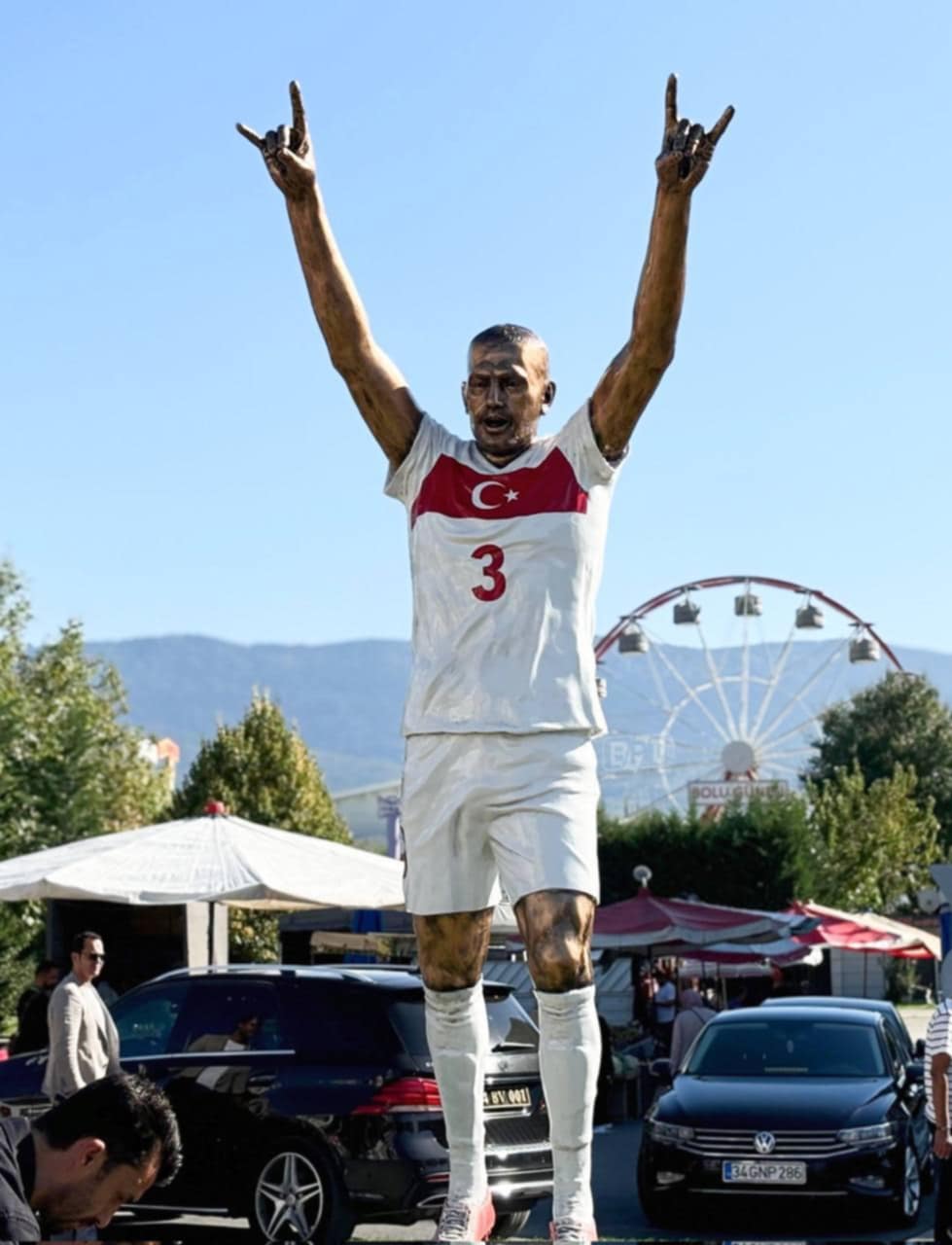In the Turkish city of Bolu, a monument has been erected in honor of footballer Merih Demiral—a player known not only for his talent on the field but also for a controversial incident during the Euro 2024 tournament. Demiral’s career took a sharp turn after he displayed the “Grey Wolves” sign during a match, leading to his disqualification from the tournament. This event sparked a heated debate about the intersection of sports, politics, and national identity. But what does this monument represent? Is it a tribute to a national hero or a divisive symbol with deeper political implications?
The Rise of Merih Demiral

Before delving into the controversy, it’s important to recognize the journey of Merih Demiral. Born in Kocaeli, Turkey, in 1998, Demiral began his football career at an early age, showing immense potential. His rise through the ranks of Turkish and European football was meteoric. By 2019, he was playing for Juventus, one of Italy’s top clubs, and soon became a key player for the Turkish national team. His aggressive style of play, leadership qualities, and dedication to the sport made him a fan favorite.
But as Demiral’s star rose on the field, his actions off the field would thrust him into the center of a national—and international—debate.
Interested In More: Boy Abducted at Age 6 Reunites with Family 73 Years Later—Thanks to His Niece’s Unwavering Determination
The Incident That Changed Everything
During a high-stakes Euro 2024 match, Demiral scored a decisive goal for Turkey. In the heat of the moment, he celebrated by making the “Grey Wolves” hand sign—a gesture associated with a far-right Turkish nationalist group. The “Grey Wolves” have a long and controversial history in Turkey, known for their ultra-nationalist, and at times, violent stance on political issues.
For some, this sign was a show of patriotism, a proud display of Turkish identity. But for others, it was a deeply disturbing gesture, a reminder of the division and conflict that the “Grey Wolves” symbolize. The international football community reacted swiftly, with UEFA launching an investigation. As a result, Demiral was disqualified from the tournament, a decision that only fueled the fire of the controversy.
What the “Grey Wolves” Symbol Means

To fully understand the impact of Demiral’s gesture, it’s essential to explore the significance of the “Grey Wolves.” The group emerged in the 1960s as the paramilitary wing of the Nationalist Movement Party (MHP), advocating for a pan-Turkic identity and often engaging in violent acts against left-wing activists and minority groups. While the organization’s influence has waned over the years, it still holds a significant place in Turkish politics and society, representing a strong sense of national pride for some and a troubling force for others.
For many outside Turkey, the “Grey Wolves” are seen as a far-right, ultra-nationalist group with a dangerous ideology. Within Turkey, opinions are divided. Some view the group as defenders of Turkish sovereignty, while others see them as a divisive force that promotes hatred and violence.
A Monument for Merih Demiral in Bolu
Despite the controversy surrounding the Euro 2024 incident, the city of Bolu chose to honor Merih Demiral with a monument. The statue depicts him in a triumphant pose, capturing the moment he celebrated his goal during the match—though the controversial hand gesture has been notably omitted from the statue.
For Bolu’s local government and many of its residents, this monument is a tribute to Demiral’s achievements in football and his contributions to Turkish national pride. “Merih Demiral is a symbol of our strength and resilience,” said one local official during the unveiling ceremony. “This monument represents his dedication to our country and his fight for Turkish honor on the international stage.”
But not everyone agrees with this sentiment. Critics argue that the monument glosses over the divisive nature of Demiral’s actions. “Erecting a statue of someone who used a symbol of hate is a dangerous precedent,” said one opponent of the monument. “We should not be celebrating gestures that bring harm and division to our country.”
The Public Reaction
Public opinion in Turkey has been sharply divided over the monument. Supporters argue that Demiral’s actions were taken out of context and that the footballer was simply expressing his national pride. They believe the international community overreacted, punishing a player who was showing loyalty to his country. “We should be proud of him,” one fan said. “He stood up for Turkey when the world was watching.”
On the other hand, critics believe that Demiral’s gesture was not just a harmless act of patriotism but a dangerous expression of far-right ideology. “We can’t ignore what that sign represents,” said a journalist who covered the controversy. “By celebrating Demiral without addressing the deeper implications of his actions, we’re sending the wrong message to the world.”
The Role of Politics in Sports
The incident also highlights a broader issue: the role of politics in sports. While athletes are often seen as representatives of their nations, their actions can have far-reaching consequences beyond the field. In Demiral’s case, his gesture was a powerful reminder that sports can never be completely separated from politics.
For Turkey, a country with a complex political landscape, the intersection of national identity, politics, and sports has always been a contentious issue. The “Grey Wolves” sign may have been a gesture of pride for some, but for others, it was a symbol of division and intolerance.
A Legacy of Controversy

As the dust settles, the monument of Merih Demiral stands as a physical reminder of this controversy. Whether it will be seen as a symbol of pride or a source of division in the years to come remains to be seen. But one thing is certain: Demiral’s legacy, for better or worse, is now forever tied to this moment in history.
As for Demiral himself, he has remained largely silent on the issue since his disqualification. Some speculate that he may return to football with a renewed focus, while others believe that the incident has permanently tarnished his reputation.
Final Thoughts
The story of Merih Demiral and his controversial celebration during Euro 2024 is not just about football—it’s a reflection of the complex relationship between sports, politics, and national identity. In a world where athletes are often held to higher standards, their actions—both on and off the field—can have profound consequences.
Whether you view Demiral as a hero or a symbol of division, his story serves as a reminder that sports can ignite powerful emotions, bring people together, and just as easily drive them apart. The monument in Bolu stands as a testament to this complicated legacy—a tribute to a footballer who, in one moment, became a national symbol of both pride and controversy.
What do you think? Should athletes be held accountable for political gestures made in the heat of competition, or should sports remain separate from politics? Share your thoughts and join the conversation on our website!
Sources:
Euro 2024: Turkey’s Demiral banned for ‘wolf’ gesture – DW – 07/05/2024

